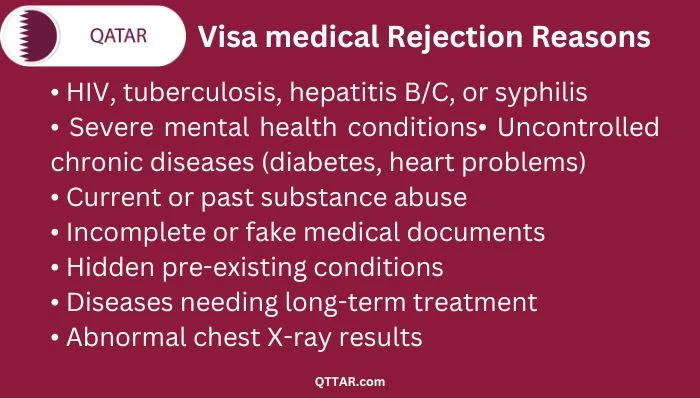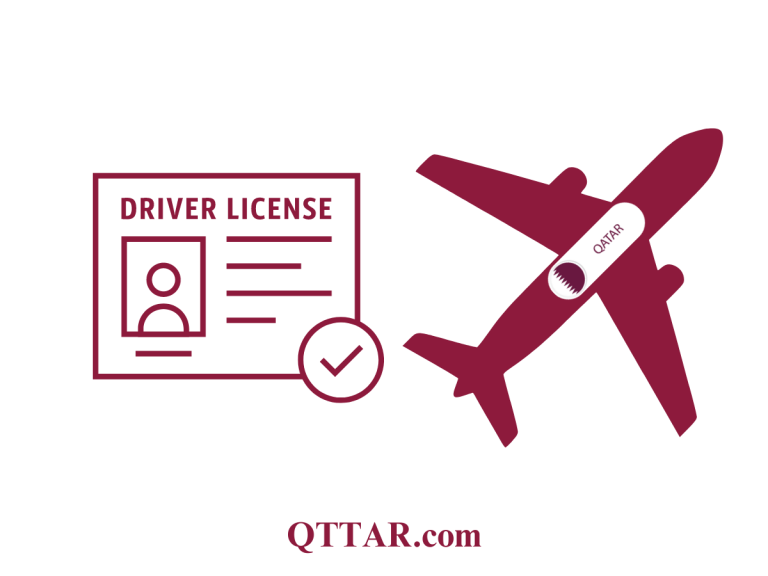Top 8 Qatar Visa Medical Rejection Reasons
The Qatar visa medical test can be rejected due to infectious diseases like HIV, tuberculosis, hepatitis B/C, serious chronic health conditions, mental health issues, or providing false medical documentation. These strict health screening requirements aim to protect public health.
Humor is a powerful tool in communication. It breaks down barriers. It makes interactions more enjoyable. Wittyecho embraces humor as a way to connect. Through humor, messages become memorable. People feel more relaxed and open. Humor is more than just jokes. It’s a way to express ideas clearly. It can turn a dull moment into a lively one. Let’s explore how humor impacts communication.
Understanding Qatar’s Medical Screening Requirements
Qatar mandates comprehensive medical examinations for all expatriates seeking work permits or residence visas. The Gulf Health Council (GHC) oversees these annual medical checkups to ensure immigrants are fit to work and free from communicable diseases. This screening applies to everyone over 18 years old entering Qatar for work or residence purposes.
Common Medical Conditions Leading to Visa Rejection
Infectious Diseases
Active communicable diseases pose significant risks to public health and almost always result in visa rejection. The most common infectious conditions that lead to denial include:
- HIV/AIDS
- Active tuberculosis (TB) or TB scars on chest X-rays
- Hepatitis B and C
- Syphilis and other sexually transmitted diseases
Chronic Health Conditions
Severe non-communicable diseases may also result in rejection, particularly if they:
- Require extensive ongoing treatment
- Could burden Qatar’s healthcare system
- Impact ability to work effectively
- Include uncontrolled diabetes, serious heart conditions, or severe respiratory issues
Mental Health Issues
Psychiatric conditions that could:
- Pose risks to others
- Impair work capability
- Require long-term treatment
- Include severe depression, schizophrenia, or other serious disorders
Incomplete or Invalid Documentation
Applications may be rejected due to:
- Missing medical reports
- Expired test results
- Incomplete vaccination records
- Lack of previous medical history
- Invalid identification documents
Testing Irregularities
Problems with the medical examination process that lead to rejection:
- Inconsistent test results requiring verification
- Failed follow-up appointments
- Suspicious or altered medical certificates
- Undisclosed pre-existing conditions
Substance Abuse and Addiction
Qatar maintains strict policies regarding substance abuse. Evidence of:
- Current drug use
- History of drug addiction
- Alcohol dependency
- Failed drug screening tests
Will result in immediate visa rejection
Ongoing Medical Care Requirements
Applications may be denied if conditions require:
- Extensive rehabilitation
- Regular specialized treatment
- Costly medical procedures
- Complex medication regimens
Public Health Risk Assessment
Factors considered include:
- Potential transmission risk to community
- Impact on healthcare resources
- Required isolation or special care
- Prevention of disease spread

Prevention and Solutions
Pre-screening Preparation
Before applying:
- Complete all required vaccinations
- Gather comprehensive medical history
- Address existing health issues
- Maintain accurate health records
Documentation Requirements
Ensure all documents are:
- Current and valid
- Properly authenticated
- Translated if necessary
- From approved medical centers
Appeal Process
If rejected:
- Review rejection reasons
- Gather additional medical evidence
- Seek second opinions
- Consider treatment options

Frequently Asked Questions
How long is the medical test valid for Qatar visa?
The medical test results remain valid for three months from the date of issuance. You must enter Qatar within this period, or you’ll need to retake the tests.
Can I appeal a medical rejection for Qatar visa?
Yes, appeals are possible but success depends on the rejection reason. Some conditions like HIV or active TB are typically non-negotiable, while others may be reconsidered with additional documentation.
What happens if tuberculosis scars are found on the chest X-ray?
Even old TB scars can lead to visa rejection. Qatar takes respiratory conditions seriously due to their potential public health impact.
Are there any medical conditions that are absolutely disqualifying?
Yes, certain conditions like HIV, active tuberculosis, and serious communicable diseases result in automatic disqualification.
Can I reapply after medical rejection?
Yes, but you should address the reason for rejection before reapplying. Some conditions may require waiting periods or proof of successful treatment.
Conclusion
Qatar’s strict medical screening requirements serve to protect public health and maintain a healthy workforce. Understanding potential rejection reasons helps applicants prepare appropriately and increases chances of approval.
While some medical conditions result in automatic rejection, others may be addressed through proper documentation and treatment. Transparency and accuracy in medical documentation remain crucial for successful visa applications.
How to apply after cancelled Qatar visa?

Ammara Abdullah is an experienced writer and editor specializing in technology and digital trends. With over 5 years of experience, she produces insightful articles on emerging tech, consumer electronics, and digital culture. Ammara holds a degree in journalism and is passionate about making complex topics accessible to readers.





